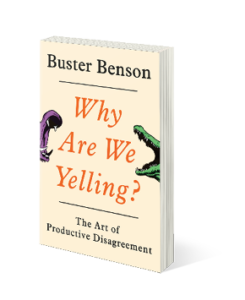 1. Why Are We Yelling?
1. Why Are We Yelling?
The Art of Productive Disagreement
By Buster Benson
These are two things that might surprise you: No. 1: You don’t have to be right all the time. No. 2: Disagreements can actually be a good thing.
In his first book, Buster Benson dives into how disagreement can go from something to avoid, to something that can be beneficial. Getting there, of course, is not easy.
Benson’s ideas aren’t only useful in the workplace. They can help you settle a fight between your children, or learn from an argument with your spouse. He also expands on his ideas, and asks readers to think about the possible results if we stopped arguing so much politically and started finding productive solutions from our disagreements. His ideas are not just well explained, but he also uses clever graphics and visuals to make them stick. (November; Portfolio; $28)
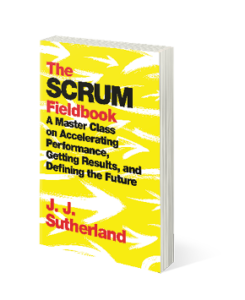 2. The Scrum Fieldbook
2. The Scrum Fieldbook
A Master Class on Accelerating Performance, Getting Results, and Defining the Future
By J.J. Sutherland
If you keep doing things in the ways of the past, you’re going to get left behind, says J.J. Sutherland.
“A revolution is driving change in the business world,” Sutherland writes. “It is showing us a new world, where the old limits don’t even apply.”
Sutherland lays out how to get with the times, with each chapter tackling a different topic with solutions that can easily be applied to any situation no matter what role you play in an organization or whether you work for yourself.
Each solution is backed by real world experience, examples and studies. To drive home his points, Sutherland conveniently sums up each chapter with takeaways, but he takes it one step further with challenges he calls “backlog items” to get the reader to apply those points. (October; Crown Publishing Group; $28)
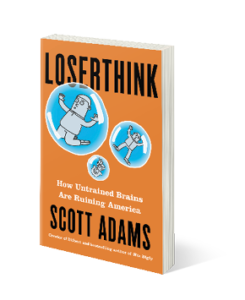 3. Loserthink
3. Loserthink
How Untrained Brains Are Ruining America
By Scott Adams
“Loserthink is about unproductive ways of thinking. You can be smart and well informed while at the same time being a flagrant loserthinker,” writes Scott Adams, the creator of the Dilbert comic strip.
In his book, Adams offers examples of loserthink, and how we’ve likely all done it before. We get heated about something and refuse to listen to the other side, even if they’re right; or news breaks and we assume all of the reporting will be correct.
“Initial reporting is often so wrong or out of context that it’s a waste of energy to immediately get worked up about what you see in the news,” Adams writes, adding that’s why he likes to wait two days before forming an opinion on something.
The book is intended to help you become a better thinker, in a world where we often don’t stop to think. (November; Portfolio; $27)
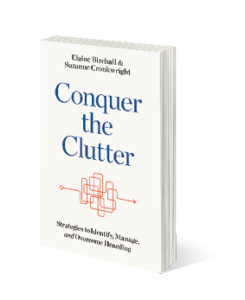 4. Conquer the Clutter
4. Conquer the Clutter
Strategies to Identify, Manage, and Overcome Hoarding
By Elaine Birchall and Suzanne Cronkwright
You might read the title of this book, and think, I’m not a hoarder. I don’t need to read that. But the stack of books piling up in your room might suggest otherwise. That junk drawer that has turned into two drawers might need some tending, too.
You might not be a hoarder, perhaps you are just someone who lets things clutter. Either way, this book will guide you through ways to stay organized, clean and let go of the things you don’t need. It’s filled with advice brought to you via real-life stories, graphs, charts, and even worksheets. There’s even a self assessment: Do your doors open all the way? Are there clear passages through the rooms of your home? Careful, you could be a hoarder in the making. (October; Johns Hopkins University Press; $30)
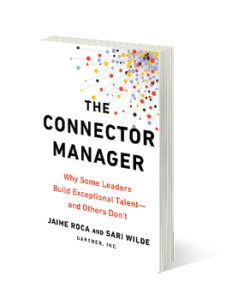 5. The Connector Manager
5. The Connector Manager
Why Some Leaders Build Exceptional Talent—and Others Don’t
By Jaime Roca and Sari Wilde
How do you lead? Do you teach by example, guided by your expertise? Do you provide feedback all the time? Do you step back and let your employees do their thing but encourage them throughout their work?
Or are you a manager who connects? Someone who helps “employees improve their performance by helping not just in their current job but also in their future careers, while at the same time enhancing their engagement and retention.” The last one, connector managers, are usually the most successful and the best leaders, write Jaime Roca and Sari Wilde.
Roca and Wilde explain why you should aspire to be a connector manager, and ways to get there. They also break down how to succeed as a connector manager on several levels: by fostering relationships with your employees, by developing a strong connection between your team, and by growing ties within your organization as a whole. (September; Portfolio; $28)
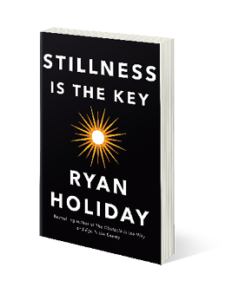 6. Stillness Is the Key
6. Stillness Is the Key
By Ryan Holiday
When’s the last time you really got a chance to sit still and breathe? We need to remember to take time to do this, writes Ryan Holiday in Stillness Is the Key.
“History shows that the ability to cultivate quiet and quell the turmoil inside us, to slow the mind down, to understand our emotions, and to conquer our bodies, has always been extremely difficult,” he writes. Holiday cites Blaise Pascal, who in 1654, wrote that, “All of humanity’s problems stem from man’s inability to sit quietly in a room alone.”
So how to be still? Holiday offers ways to do this in his book. He breaks it down into three parts: the mind, the spirit and the body. Because all of them need to be still. (October; Portfolio; $25)
Related: The Determining Factor
This article originally appeared in the November/December 2019 issue of SUCCESS magazine.
Photo by @Tereza/Twenty20
[fl_builder_insert_layout slug=”amazon-affiliate-disclaimer”]



